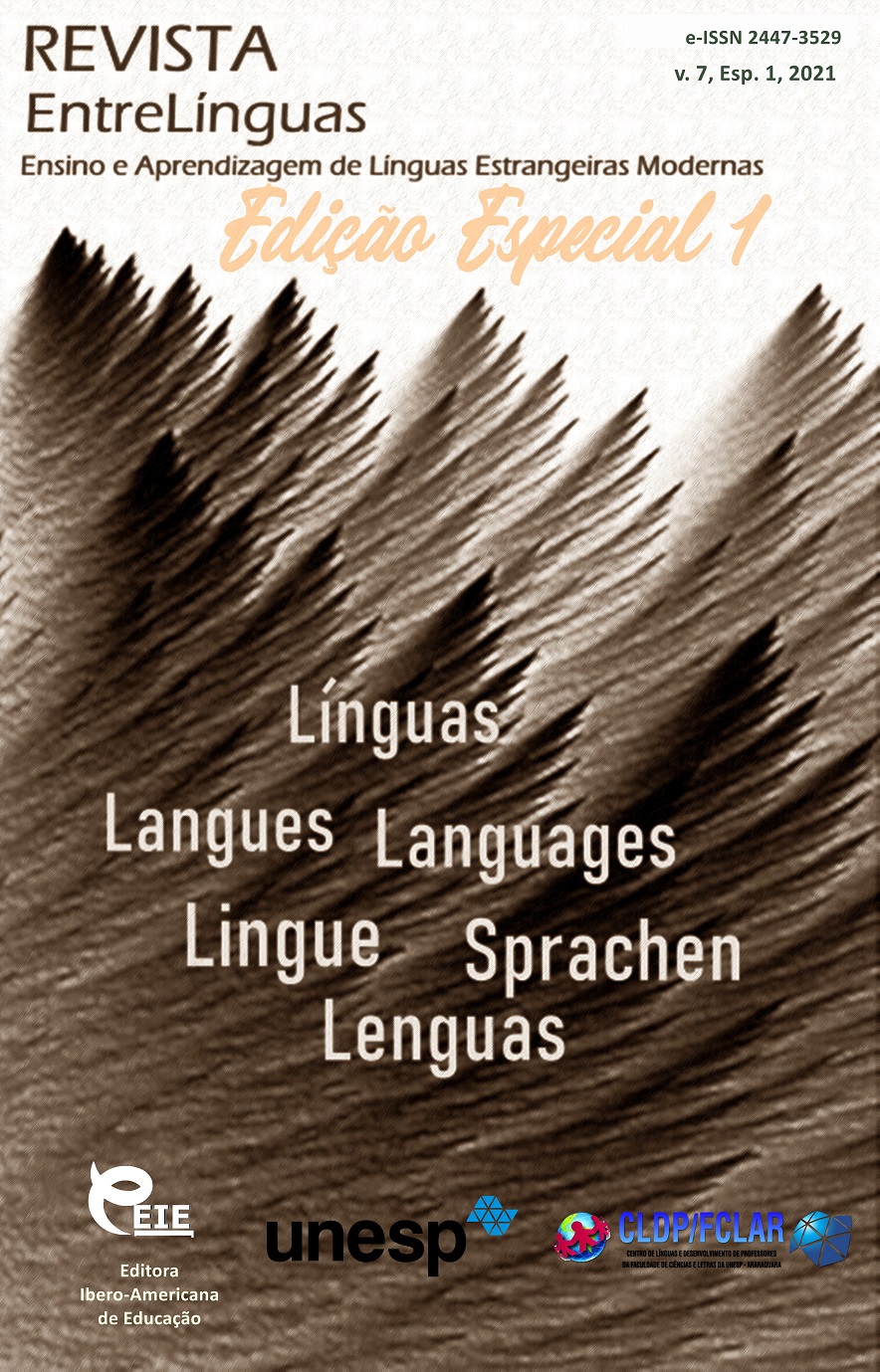Critical thinking development technology: theoretical basis and its application in secondary school (to teaching the russian language)
DOI :
https://doi.org/10.29051/el.v7iEsp1.14856Mots-clés :
Critical thinking, Technology, Technological stages, Teaching methods and strategies, Teaching the Russian languageRésumé
The paper presents a modern pedagogical technology for the critical thinking development, aimed at forming the pupils' ability to analyze facts, phenomena, and processes from the standpoint of logic in their relationship and interdependence. It reveals the specifics of critical thinking development technology, provides a description of the methodology for critical thinking development using the example of teaching the Russian language at high school: the stages of the educational process (challenge, comprehension, reflection), techniques and methods of this technology, examples of their application and advantages of use. In course of the study, the authors conclude that the critical thinking development technology is implemented through the interactive inclusion of students in the educational space through a specific organization of the educational process based on three main stages and a system of teaching methods that consistently implement the tasks at each stage. The critical thinking development technology activates the pupils’ mental and speech activity and contributes to their active involvement in the educational and cognitive process. The study is based on the methods of observation, analysis, synthesis, description, comparison, and generalization.
Téléchargements
Références
BELOZERTSEV, E. P.; CHERNYKH, L. A. The idea and principle of nationality in education: a monograph. 2003.
BOCHINA, T.; AGEEVA, J.; VLASICHEVA, V. Multimedia presentation as a strategy of teaching speaking. In: INTERNATIONAL TECHNOLOGY, EDUCATION AND DEVELOPMENT CONFERENCE, 8., 2014, Valencia. Proceedings […]. Valencia, Spain: INTED, 2014. p. 7661-7669.
EROFEEVA, A. A. et al. Actividad comunicativa y formación de la cultura del habla en los estudiantes. Dilemas contemporáneos: Educación, Política y Valores, año VI, 2019.
GALITSKY, E.O. Dialogue in education as a way of becoming tolerance. 2004.
NIKIFOROVA, E. P.; BORISOVA, L .P.; EVERSTOVA, A. I. The use of critical thinking technology in the lessons of the Russian language in the Yakut school. Historical and socio-educational thought, v. 9, n. 4/2, p. 169-176, 2017.
NURULLINA, G.M.; EROFEEVA, I.V.; USMANOVA, L.A. Organization of extra-curricular activity in the system of teacher professional training. The European Proceedings of Social & Behavioural Sciences, n. 36, p. 310-316, 2018.
SHKURKO, V. Y.; LUKOYANOVA, Y. K.; SERGEEVA, E. Using Fictional Texts In Teaching Russian As A Second Native Language. Modern Journal Of Language Teaching Methods, v. 7, n. 10, p. 59-63. 2017.
SORINA, G. V. Critical thinking: history and current status. Bulletin of Moscow University, v. 7, n. 6, p. 97-110. 2003.
ZAGASHEV, I. O.; ZAIRE-BEK, S. I. Critical thinking: technology development. 2003.
Téléchargements
Publiée
Comment citer
Numéro
Rubrique
Licence

Ce travail est disponible sous licence Creative Commons Attribution - Pas d’Utilisation Commerciale - Partage dans les Mêmes Conditions 4.0 International.
Os manuscritos aceitos e publicados são de propriedade da Revista EntreLínguas. Os artigos publicados e as referências citadas na Revista EntreLínguas são de inteira responsabilidade de seus autores.
Transferência de direitos autorais – autorização para publicação
Caso o artigo submetido seja aprovado para publicação, já fica acordado que o(s) autor(es) autoriza(m) a UNESP a reproduzi-lo e publicá-lo na EntreLínguas, entendendo-se os termos “reprodução” e “publicação” conforme definição respectivamente dos incisos VI e I do artigo 5° da Lei 9610/98. O artigo poderá ser acessado pela rede mundial de computadores (Internet), sendo permitidas, a título gratuito, a consulta e a reprodução de exemplar do artigo para uso próprio de quem a consulta, desde que haja a citação ao texto consultado. Essa autorização de publicação 328 EntreLínguas, Araraquara, v. 1, n .2, p. 323-328, jul./dez. 2015 não tem limitação de tempo, ficando a UNESP responsável pela manutenção da identificação do(s) autor(es) do artigo. Os artigos publicados e as referências citadas na Revista EntreLínguas são de inteira responsabilidade de seus autores.











